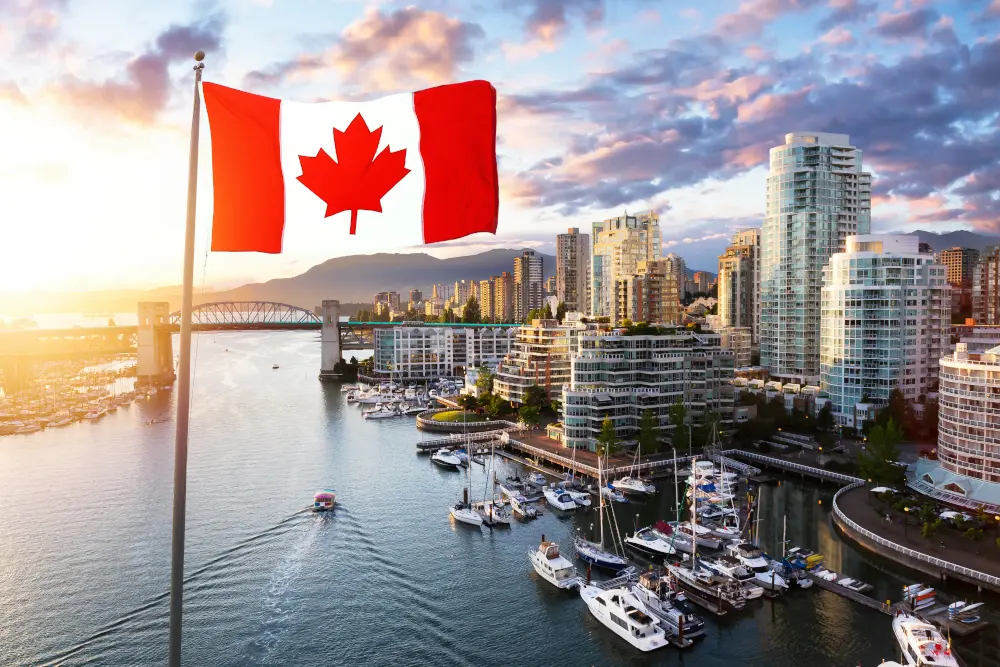
Provincial Nominee Program (PNP)
Canada’s Provincial Nominee Program (PNP) is a key immigration option for skilled workers, entrepreneurs, and students who want to settle in a specific province or territory. Each province and territory (except Quebec) has its own program with unique requirements to meet local labor market needs.
What is the Provincial Nominee Program (PNP)?
The Provincial Nominee Program allows provinces and territories to select immigrants who can contribute to their economy. Unlike federal programs, which apply to all of Canada, PNPs focus on filling labor shortages and attracting individuals with skills and experience needed in specific regions.
Candidates must meet the criteria set by the province they apply to. If selected, they receive a provincial nomination, which increases their chances of getting permanent residence through Immigration, Refugees, and Citizenship Canada (IRCC).
Who Can Apply for a PNP?
PNPs are for people with work experience, education, or business skills that match the needs of a particular province. The main categories include:
- Skilled Workers: Professionals in demand, such as healthcare workers, IT specialists, and engineers.
- Semi-Skilled Workers: People with experience in trades, agriculture, and transportation.
- Entrepreneurs and Investors: Individuals who plan to start or invest in businesses in Canada.
- International Students: Graduates from Canadian institutions who want to stay and work in the province.
Each province sets its own selection criteria, which may include job offers, language skills, and work experience.
How the PNP Works
The PNP process involves two main steps:
- Applying to a Provincial Program: Candidates must choose a province and meet its specific requirements. Some programs require a job offer, while others focus on work experience or education.
- Applying for Permanent Residence: Once nominated, candidates can apply for permanent residency through the federal government. If they are in the Express Entry system, they receive an extra 600 Comprehensive Ranking System (CRS) points, which practically guarantees an Invitation to Apply (ITA) for permanent residence.
Benefits of the Provincial Nominee Program
Faster Processing
Many PNP streams offer priority processing for permanent residency applications, making it quicker than other immigration routes. Express Entry-linked PNPs are especially fast, as they streamline applications through an existing federal system.
Easier Requirements
PNPs often have lower eligibility requirements compared to federal programs. Some streams accept applicants with lower language test scores or fewer years of work experience. This makes it an attractive option for those who do not qualify under federal programs like the Federal Skilled Worker Program (FSWP).
More Job Opportunities
Since PNPs focus on regional labor shortages, applicants often find it easier to get a job offer from a local employer. Many provinces have agreements with businesses that need skilled workers, giving immigrants a higher chance of finding work.
Pathway for International Students
Graduates from Canadian colleges and universities have access to special PNP streams. These allow students to apply for permanent residence without requiring work experience, making it easier to stay in Canada after graduation.
Support for Entrepreneurs
Some provinces offer business immigration streams under the PNP. These programs allow entrepreneurs and investors to start businesses in Canada, contributing to the local economy while securing a path to permanent residency.
Popular Provincial Nominee Programs
Each province and territory runs its own PNP with different streams. Some of the most popular programs include:
- Ontario Immigrant Nominee Program (OINP): Focuses on skilled workers, entrepreneurs, and graduates.
- British Columbia Provincial Nominee Program (BC PNP): Offers fast processing for tech workers, healthcare professionals, and skilled trades.
- Alberta Advantage Immigration Program (AAIP): Accepts Express Entry candidates and entrepreneurs.
- Manitoba Provincial Nominee Program (MPNP): Provides opportunities for skilled workers, international graduates, and business investors.
- Saskatchewan Immigrant Nominee Program (SINP): Has a popular Express Entry stream and opportunities for agriculture workers.
- Atlantic Immigration Program (AIP): Covers four Atlantic provinces (New Brunswick, Newfoundland and Labrador, Nova Scotia, and Prince Edward Island) and helps fill labor gaps.
How to Apply for a PNP
- Choose a Province: Research PNPs and pick one that matches your skills and work experience.
- Meet Eligibility Requirements: Each province has different rules, so check the specific requirements before applying.
- Submit an Application to the Province: If approved, you will receive a provincial nomination.
- Apply for Permanent Residence: Submit your application to IRCC, either through Express Entry or paper-based processing.
- Wait for Processing: If your application is successful, you will receive a Confirmation of Permanent Residence (COPR) and can move to Canada.
Conclusion
The Provincial Nominee Program (PNP) is a great option for immigrants who want to settle in specific provinces. With faster processing, easier eligibility requirements, and strong job opportunities, it offers a clear path to permanent residence. Whether you are a skilled worker, student, or entrepreneur, the PNP provides a flexible way to build a future in Canada.
Frequently Asked Questions (FAQs)
1. How long does it take to get permanent residency through a PNP?
Processing times vary, but Express Entry-linked PNPs are often processed within 6-8 months. Paper-based applications may take 12-18 months.
2. Can I apply for multiple PNPs at the same time?
Yes, but you must meet the requirements for each province. You cannot accept multiple nominations at once.
3. Do I need a job offer for a PNP?
Not always. Some PNP streams allow applicants to apply without a job offer if they have work experience in an in-demand field.
4. Can I move to another province after getting PR through a PNP?
PNP applicants are expected to live and work in the province that nominated them. However, once you become a permanent resident, you have the right to move anywhere in Canada.
5. What is the easiest PNP to apply for?
It depends on your profile. Provinces like Saskatchewan and Manitoba have lower eligibility requirements, while Ontario and British Columbia focus on specific occupations and job offers.



